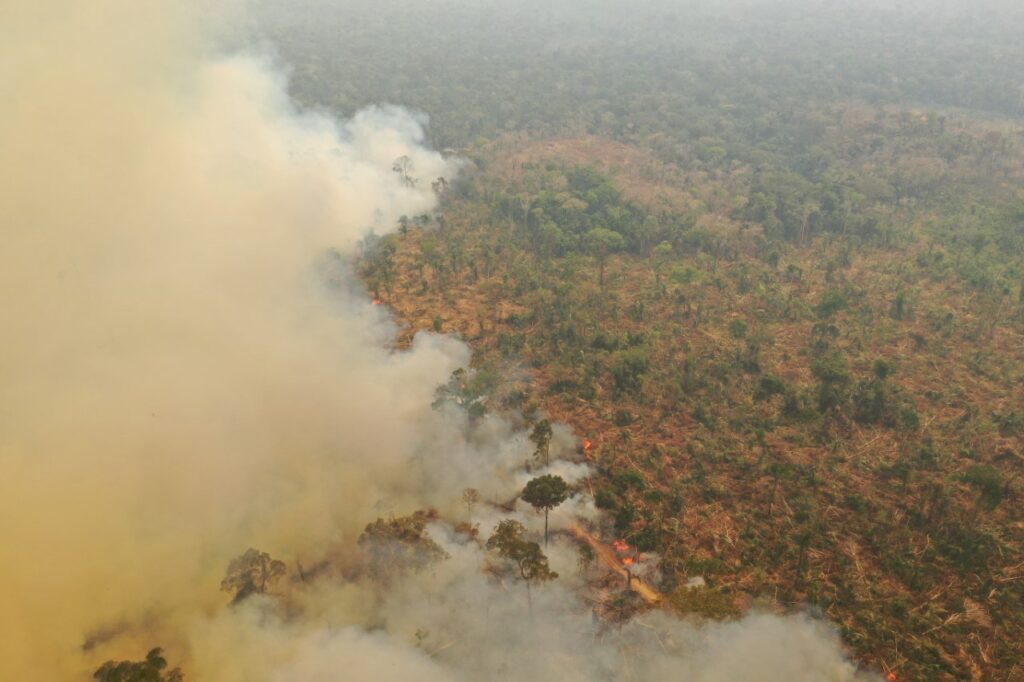While waiting for the recognition of ecocide as an international crime under the Rome statute of the International Criminal Court (ICC), three civil society organisations filed a case before the court on Wednesday, claiming that crimes against humanity have been committed in the Brazilian Amazon.
The timing of the case is clearly linked to United Nations Climate Change Conference, COP27, in Sharm El Sheikh, Egypt, which started on Sunday. The conference has been described as the last chance for mankind to get its act together and live up to the commitments to reduce green-house-gas emissions by 2030 to achieve the objective of limiting temperature rise to 1.5 degrees.
In his speech at the high-level opening of the conference, United Nations Secretary-General Antonio Guterres called for a Climate Solidarity Pact – a historic pact between developed and emerging economies. “This is our only hope of meeting our climate goals. Humanity has a choice: cooperate or perish. It is either a Climate Solidarity Pact – or a Collective Suicide Pact.”
Wildfires and systematic crimes in the Amazon
“The crimes committed in the Amazon against vulnerable communities are massive, widespread, systematic, and well-orchestrated by a network of powerful actors,” commented Richard J. Rogers, Executive Director of Climate Counsel. A senior UN lawyer at UN war crimes tribunals, he is founder of Climate Counsel, a non-profit foundation based in the Hague dedicated to environmental justice.
“Their policy of dispossession, exploitation, and destruction promotes violence on a scale that may amount to crimes against humanity,” he says.
The Amazon rainforest is a global natural resource which needs to be protected for its immense biodiversity and its function as carbon sinks in fighting climate change. But in recent years, under former Brazilian president Jair Bolsonaro, the rainforest has been hit by the largest wild fires in decades while the country’s authority for environmental protection has been dismantled.
These wildfires are driven by climate change but also by deforestation caused primarily by land conversion for agriculture. Climate change experts are warning that the planet is dangerously close to a tipping point in the Amazon rain forest, when it will tip over to a totally different ecosystem with would affect the climate of the planet enormously.
In the past, calculations showed that Amazon would pass the tipping point and become savanna if about 40 % of the rain forest disappeared. Now scientists suspect that the tipping point might be closer to 20 – 25 % deforestation. During Bolsonaro’s rule, 30,000 km2 or the size of Belgium has been deforested. Part of the rainforest is already emitting more green-house-gases than it can absorb.
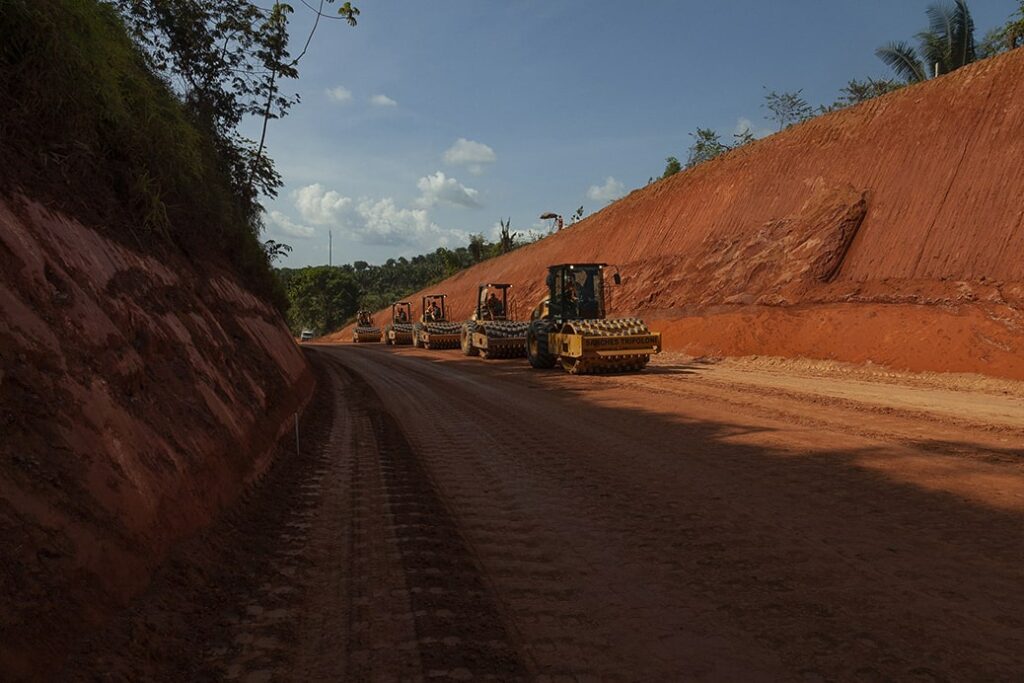
Infrastructure projects cut through the heart of pristine forest - Pará State, Brazil. © Martin Middlebrook/Climate Counsel - All Rights Reserved 2022
Organised criminal network is responsible
According to the evidence presented by the three organisations, Climate Counsel, Greenpeace Brasil and Observatório do Clima, an organised network of politicians, civil servants, law enforcement officers, businessmen, and other criminals have carried out a widespread or systematic attack against rural land users and defenders in the Amazon region.
There have been over 12,000 land or water-related conflicts in the Brazilian Amazon over the past 10 years (2011 – 2021), according to the Communication filed to the Prosecutor’s office at the ICC. The associated mass human rights abuses may amount to crimes against humanity. The Filing Parties request the ICC Prosecutor to open an examination to fully investigate the alleged crimes against humanity.
The conflicts have resulted in 430 murders, 554 attempted murders, 2290 death threats, 87 cases of torture, and over 100,000 expulsions or evictions. The victims are from a variety of Indigenous Peoples, traditional communities, and other vulnerable groups “whose land has been ruthlessly exploited for profit through a widespread or systematic attack against their lives and livelihoods”.
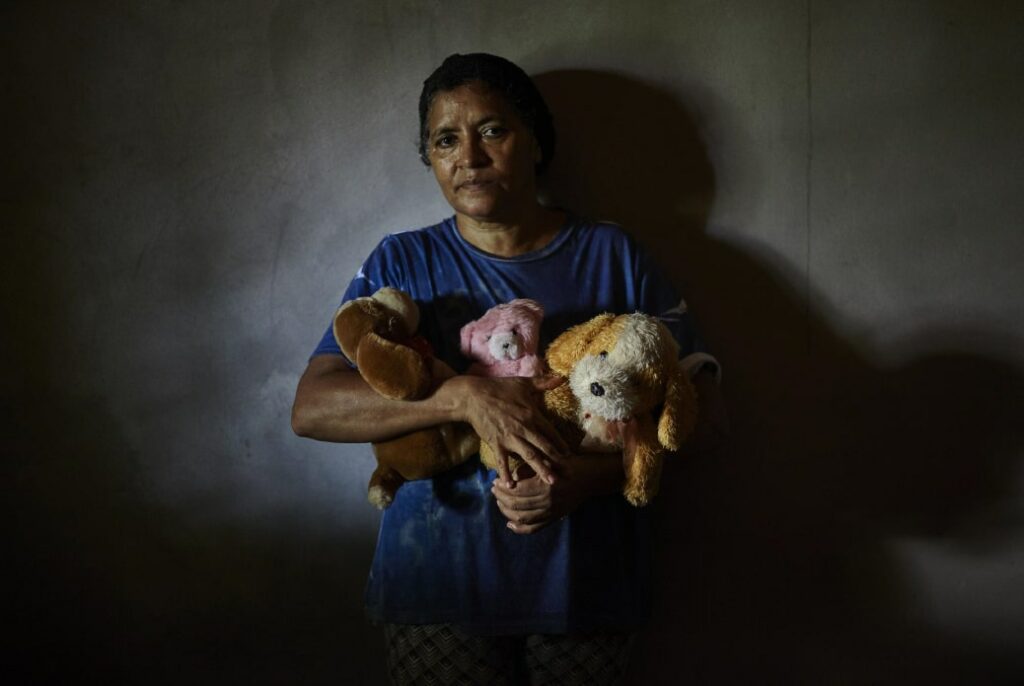
Laisa Sampaio, sister of Maria do Espírito Santo, murdered in Pará State. © Martin Middlebrook/Climate Counsel - All Rights Reserved 2022
As in last year’s conference in Glasgow (COP26), ecocide is not part of the official agenda but will be discussed in several side events during the conference.
“Our case is not so much a test case on ecocide,” Richard J. Rogers told The Brussels Times. “It's more a test case on how the ICC could tackle situations involving environmental destruction and the associated mass human harm, using the current international criminal laws.”
“In the situation of Brazil, it is possible to use the law of 'crimes against humanity' because there are also mass crimes against people. If we had a new international law on ecocide, it would be far easier to prosecute these types of situations, because we would not need to prove the mass human harm but only the environmental harm."
The communication to the ICC is supported by an online platform, developed by INTERPRT, a research agency affiliated with Norwegian University of Science and Technology (NTNU) and Climate Counsel. It hosts testimonies of survivors, photographic evidence, 3D reconstructions of crime scenes, visualizations of data, analysis of satellite images, and deforestation data.
To what extent have the crimes, 430 murders and thousands of land conflicts, been investigated and prosecuted by the Brazilian authorities?
“The vast majority have not been resolved,” Rogers replied. “This is partly because the relevant authorities are severely under-resourced considering the scale and nature of the problem. But also, for more sinister reasons: In some cases, the local police were involved in the crimes; in others, powerful actors thwart investigations by corruption, threats, and even murder of witnesses.”
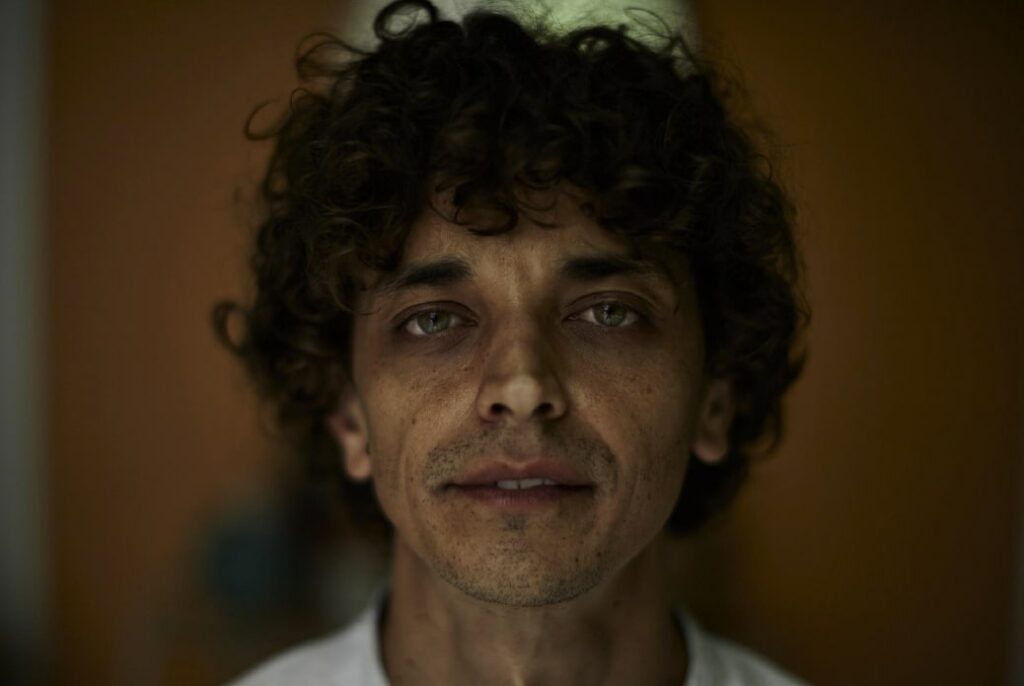
José Vargas Sobrinho Junior, Brazilian Lawyer representing victims of Pau d’Arcao massacre. Framed for murder and under house arrest. © Martin Middlebrook/Climate Counsel - All Rights Reserved 2022
To what extent are the crimes linked to and have contributed to the deforestation of the Brazilian Amazon?
"The often illegal exploitation of natural resources provides the motive for land grabbing and land invasions. The crimes are committed against those who stand in the way – Rural Land Users and their Defenders. Deforestation is one of the consequences.”
According to the Communication, a widespread and systematic attack has been committed against the civilian population, comprising murder, persecution, and other inhumane acts, against thousands of Rural Land Users and Defenders, to facilitate the dispossession of land, the exploitation of natural resources, and the destruction of the environment, irrespective of the law.
The crimes have been committed by a 'network' of private companies and public authorities. Are they random crimes or part of an organised criminal plan? Are European companies and interests involved?
“The Network’s attack has been enabled by the corporate capture and corruption of civic institutions, and through concerted acts or omissions by the executive and legislative branches of government,” he explained.
“The architecture of this multi-tiered system is varied—certain aspects are open, others obscured, and still others mixed. The overall effect is compelling: the Network’s many and varied members tacitly accept their common goal and actively strive toward its achievement.” He also puts it in a historical context, beginning in the colonial period and culminating with the present administration.
He describes the ‘network’ as an organized group of actors which is comprised of public and private-sector actors from multiple levels of Brazilian society, including (but not limited to) politicians, civil servants, law enforcement officers, representatives of private commercial interests, and a rogues’ gallery of criminal actors.
“The Network resembles a kind of informal ‘deep state’ or ‘agro-industrial complex’, with tacit but clear understanding among its participants, in which individual actors are well-aware of the parts they are expected to play. “In the final analysis, it’s a case of international crime without punishment.”
The many crimes predate the rule of Bolsonaro, who was forced to resign after the elections. Is there a time line of the crimes by year (2011-2021)?
According to the annex in the Communication, during most years during the period, Brazil was among the countries with the highest reports of annual killings. Fewer than 10% of cases have gone to court and a little over 1% have led to convictions. The logging industry was linked to several murders, while landowners were the suspected perpetrators of many killings in the Amazon.
When Bolsonaro assumed power in 2018, he pledged to open indigenous reserves to commercial development, including mining, agriculture, and infrastructure. By 2019, this had already triggered a series of invasions of indigenous lands by armed bands of land grabbers, with communities living in fear of future attacks. The number of killings of land defenders increased.
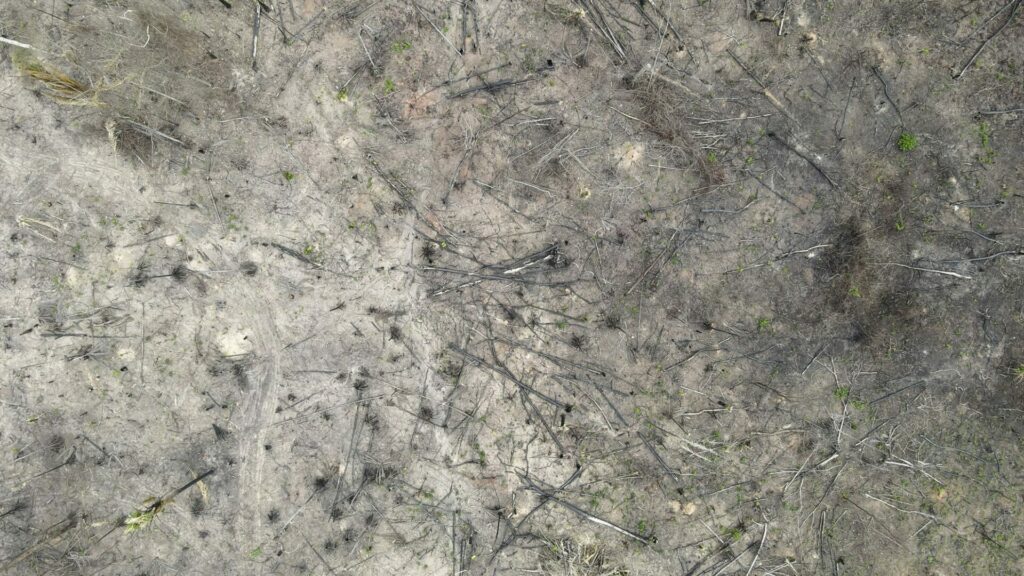
A drone shot of mass deforestation near to the site of the Pau d’Arco massacre - Pará State, Brazil. © Martin Middlebrook/Climate Counsel - All Rights Reserved 2022
Does the newly elected president, Lula da Silva, intend to fight this Network and put an end to the crimes?
“President-elect Lula has already said that he wants to see zero deforestation, a greater role for indigenous and traditional communities in decision making, and more protection for victims of crimes in the Amazon. That sounds like he intends to tackle the crimes. But it won’t be quick or easy. The Network still holds considerable sway in the halls of power.”
In your request to the ICC prosecutor, there is no list of suspected perpetrators. Do you expect the ICC to identify the perpetrators and to carry out their own forensic investigations?
“This ICC Brazil Communication focuses on the ‘system’ itself,” Rogers replied. “It’s for the ICC Prosecutor to determine which persons should be investigated and charged."
He added that the evidence suggests that certain members of the Bolsonaro administration are key actors within the Network and have been instrumental in promoting the criminal policy that has resulted in crimes against humanity. “Therefore, these individuals, among others, would likely be persons of interest for the ICC Prosecution in any investigation.”
M. Apelblat
The Brussels Times

